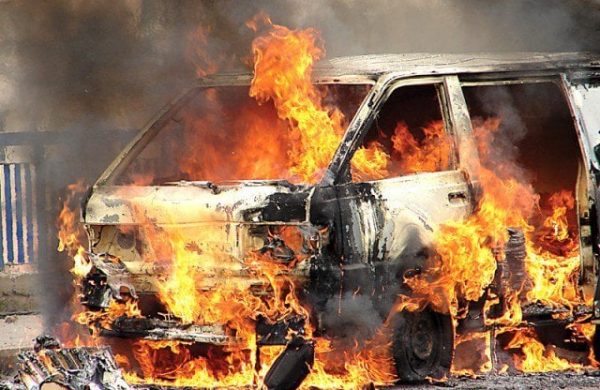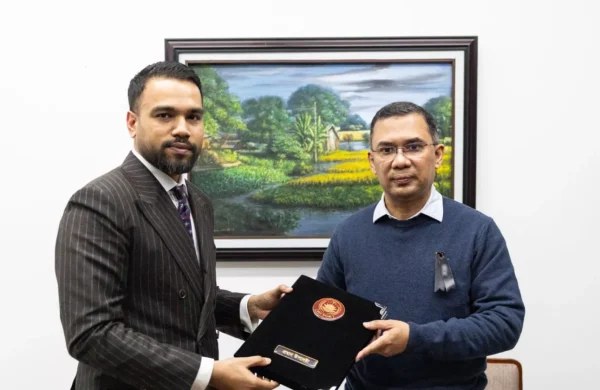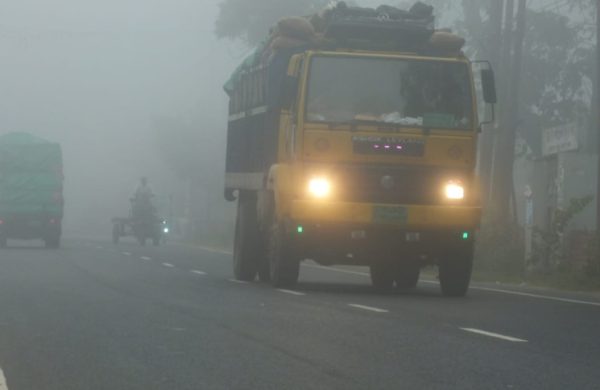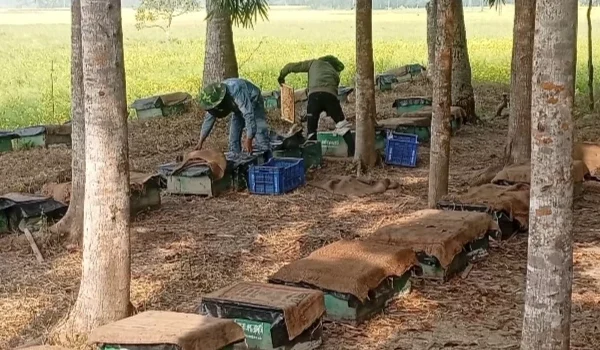Faulty gas cylinders turn to death traps
- Update Time : Tuesday, October 15, 2024

TDS Desk
Use of below standard or faulty gas cylinders at home or on vehicles has now become a matter of concern across the country. Due to lack of retesting in time, the incidents of fatal explosion from such below quality gas cylinders are on the rise.
As a result, many people including women and children are losing their lives; while many have been leading miserable live being crippled. But, there is no headache of the authorities concerned to see the matter sincerely.
Experts seem that, if surveillance in this regard is beefed up, the ratio of cylinder blasts will come to reduce. This is why, the concerned department should increase the monitoring in which no one can use below standard cylinder in their houses or vehicles. It will help to reduce causality.
At least three people were killed and 20 others were injured in a gas cylinder explosion on a bus in Lakshmipur Sadar Upazila early on Monday.
Witnesses reported that the explosion occurred around 2am at Green Life Filling Station in the Muktiganj area while a Ramgati-bound bus from Meghna Paribahan was refuelling.
Ranajit Kumar, station officer of the Fire Service and Civil Defence in the upazila, said the accident was caused by the use of a substandard gas cylinder.
Explosions from substandard cylinders, like the one in Lakshmipur, are common in Bangladesh.
Although experts advise against the unscientific modification of vehicles to prevent such explosions, there is no active monitoring of this issue.
Experts suggest that gas cylinders in vehicles are akin to “active explosives” because they contain high-pressure gas, making them prone to explosions if of poor quality or expired, especially when they come into contact with other materials.
According to fire service data, over the last four years, there have been 459 incidents directly caused by gas cylinder and boiler explosions. These incidents claimed 19 lives and injured 19 others.
Additionally, there were 1,059 vehicle fire incidents during the same period, resulting in 119 deaths and 119 injuries. Many of these vehicles were powered by CNG, which uses gas cylinders.
DATA ON FIRE INCIDENTS IN VEHICLES
Fire service data shows that in 2023, there were 27,624 fire incidents in the country, with 125 caused by gas cylinder and boiler explosions, leading to four deaths and 23 injuries. In the same year, 214 vehicle-related fires resulted in four deaths and 23 injuries.
In 2022, 24,102 fire incidents were reported, 94 of which were due to gas cylinder and boiler explosions, causing one death and 30 injuries. Meanwhile, 303 vehicle fires caused 34 injuries.
In 2021, there were 21,601 fire incidents, including 105 caused by gas cylinder and boiler explosions, resulting in eight deaths and 75 injuries. Additionally, 269 vehicle fires led to 17 deaths and 34 injuries.
In 2020, the country witnessed 21,073 fires, 135 of which were caused by gas cylinder and boiler explosions, resulting in 6 deaths and 67 injuries. That year, 259 vehicle fires caused 98 deaths and 28 injuries.
A senior Fire Service official told that the data they provide only includes incidents reported to them, and the actual number of cases may be higher.
WHAT EXPERTS ARE SAYING
Dr Md Shamsul Hoque, a professor in the Department of Civil Engineering at the Bangladesh University of Engineering and Technology, stated that gas cylinders are essentially “active explosives.”
Shamsul Hoque criticized vehicle owners for their neglect in ensuring the safety of gas cylinders. He said: “Transportation owners prioritize profit over safety, using low-quality cylinders. These cylinders need to be tested every seven months, but owners often avoid this responsibility. There’s also no regulatory body to enforce regular testing.”
He added: “Drivers, passengers, and CNG refueling stations are generally unconcerned about the risks. Strict rules and regulations must be imposed to assess and mitigate the dangers associated with gas cylinders.”
Shamsul Hoque argued that without establishing an unbiased, expert-led investigative committee and holding pivotal regulatory bodies like the BRTA accountable, it will be difficult to reduce CNG-cylinder-related explosions in Bangladesh.
“We need to create a culture of impartial investigations from the top down to curb these accidents,” he said. “Currently, accident investigations are led by non-technical personnel like police and magistrates, who often blame drivers or vehicle owners. Meanwhile, the BRTA and other regulatory bodies, which should be held accountable, are overlooked.”
He further emphasized the danger of reusing expired cylinders, which are sold cheaply in rural areas.
“BRTA must regulate the quality and recycling of these cylinders. Expired cylinders are sold in the countryside without proper safety measures because they are inexpensive. BRTA claims it lacks sufficient manpower to enforce regulations, but without proper oversight, there’s no solution,” he concluded.















